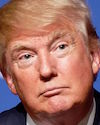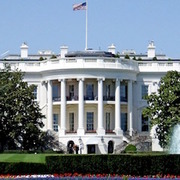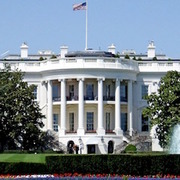tv
 Trump Administration
Trump Administration
Archive
[untitled] April 5, 2010 3:48pm-3:59pm EDT
Archive
3:48 pm
studentcam competition visit studentcam.org. >> next a discussion on u.s. involvement in iraq and afghanistan. we'll hear from h.r. mcmaster and retired general john keane. this is part of the symposium hosted by the national constitution center. it runs an hour and 50 minutes. >> good evening. and welcome. i'm david ice -- eisner, i'm the president of the national constitution center. it is our distinct honor to host the fourth annual peter jennings project for the journalist in the constitution. it's named for a man who prior to his passing in 2005 had made
3:49 pm
it his mission to bring constitutional conversation to his viewers and readers. and moreover he did it in such a say that was with his enthusiasm for what he felt for the historic human achievement represented by the u.s. constitution. it is to that unfinanced mission that the peter jennings project for journalist and the constitution is dedicated. our journalist, mid career journalist come from 19 states and 9 countries. the jennings fellows in the audience, will you all wave? the jennings fellows in the audience represent a diverse group of media professionals. they are all here, and have given us this weekend to engage the constitutional issues. they are exploring the principals and the ideas that are expressed in our nation's most cherished document.
3:50 pm
as journalist, they are serving a unique -- they are supplying a unique service. and whether directly covering the struggles of power in and among our blanches of government were or if they are reporting on business, education, health, art, culture, or any other area where constitutional issues come into play. and strengthening their ability to report on constitutional issues, their striving to provide all americans with what thomas jefferson called avenues of truth. so that all of us -- all americans, can fulfill our potential as citizens. on behalf of the center, i want to thank all of our jennings fellows and all of participants for honoring peter's legacy. i also want to thank todd
3:51 pm
brewster, who you will be hearing from in a minute. and casey jennings, a close advisor and great friend to the center. let me also extent a special thank you to the annberg foundation and knight foundation of both's support who is allowing us to bring you the peter jennings project and this forum tonight. and to our distinguished guest here tonight, i want to offer a thank you for making this what promises to be a fascinating conversation. tonight's timely program, the constitution and the long war, will consider whether the u.s. can maintain the long fought constitutions prized balance of power. where a war is prolonged, and we'll consider whether the executive must have expanded powers to act without
3:52 pm
significant participation by congress. todd brewster will introduce the program. in addition to his work with the jennings project, he's the director of the west pointe center for oral history which is our copresentor this evening. he was a close friend of peter jennings. todd is a veteran journalist who for more than 20 years covered national and international conflicts, working with "time" and abc news. he's coauthor of the best selling books of the century "insert to america." todd has taught constitutional law as a visiting profession at west wesleyan, he is a knight
3:53 pm
fellow. please welcome me in welcoming todd brewster. [applause] >> thank you, david. welcome everybody to our main event for the peter jennings project. it's a joy to be addressing corral, introducing this main event, con received around west pointe. you also hear the cause of the famous victim war is politics by other means. where should the line properly fall between civil and military affairs? the framers negotiated this path with a delicate power. they give power to congress to provide and maintain a navy, but
3:54 pm
the army must be reappropriated every two years. so fearful the standing army could be an agent of tyranny. under the administration of thomas jefferson, that west pointe was founded in 1802. jefferson, who feared standing armies as much as anyone in his time. if the framers were suspicious that a powerful military would be blood thirsty, perhaps too quick to right, history hasn't proved them right. abraham lincoln had the generals who had a bad case of the slows, so reluctant to act. in our own time, we know that the decision to invade iraq, the option of an enhanced
3:55 pm
interrogation techniques and the assistance on going to war with the army we had rather than the army they may have needed was guarded by the civilian leaders often in conflict with the mill's advice. it is army officers who understand perhaps better than anyone else the other familiar praise of war. -- phrase of war. war they know is a dangerous and unpredictable business. throughout most of american history, the army has remained small, the role, built up during wartime and demobilized quickly after. that is until world war ii. since then, the army has remained large, expensive, and more frequently employed not only because of the american stature of the superpower, but being being the super power has required the permanent war footing from world war ii to the
3:56 pm
cold war to the war on terrorist. the result has been a president who is always dressed as commander in chief. remarkably james madison anticipated this when he argued that constant apprehension of war has a tendency to render the head too large for the body. today we are in a period of extended conflict with troops deployed in two theaters and perhaps even more important that the protracted war, 30 years, 40 years, will blanket the first half of the 21st century. how can the constitution tolerate such a thing? what are the implications for civilian control of the military when the military is in a period of engagement? what are the prospects for the balance of power? today we are fortunate to have a panel of extraordinary professionals to help us negotiate through this difficult
3:57 pm
territory. general h.r. mcmaster commanded the third army calvary regimen in iraq, and was wildly praised in 2004. he has been a military history profession at west pointe, has the phd from north carolina, and has coauthored a book. he's also a local boy. he grew up here in philadelphia. required army four star general jack keane served in the vietnam war as a paratrooper. he was later deployed in somalia and kosovo. he commanded the 18th air borne division and was army chief of staff. bruce is the author of the
3:58 pm
"before the next attack: preserving civil lints in an age of terrorism" he criticized stanley mcchrystal for challenging obama last fall was widely circulated. bruce is now at work on the expansion of the presidency in the 21st century. they are all joined tonight by terry moran, coan author of abc news "nightline." the questions for tonight's work is coframed, in addition, he's also the supreme court correspondent. he has reported extensively on the wars in iraq, afghanistan, and he was white house correspondent during the presidency of bill clinton and george w. bush. let's welcome our guest and get excited for a great evening. thank you. [applause]
3:59 pm
[applause] >> thank you, todd. thank you. it's an honor to be here with all of us and with this remarkable panel. it's a great topic too. a topic of abiding interest really to generations of americans. you never know where it's going to turn up. i was in the taxi over here, told the taxi driver, i'm going to national constitution center. he starts driving, a couple of minutes later,
155 Views
IN COLLECTIONS
CSPAN2 Television Archive
Television Archive  Trump Administration
Trump Administration  Television Archive News Search Service
Television Archive News Search Service  Executive Branch Archive
Executive Branch Archive 
Uploaded by TV Archive on

 Live Music Archive
Live Music Archive Librivox Free Audio
Librivox Free Audio Metropolitan Museum
Metropolitan Museum Cleveland Museum of Art
Cleveland Museum of Art Internet Arcade
Internet Arcade Console Living Room
Console Living Room Books to Borrow
Books to Borrow Open Library
Open Library TV News
TV News Understanding 9/11
Understanding 9/11










